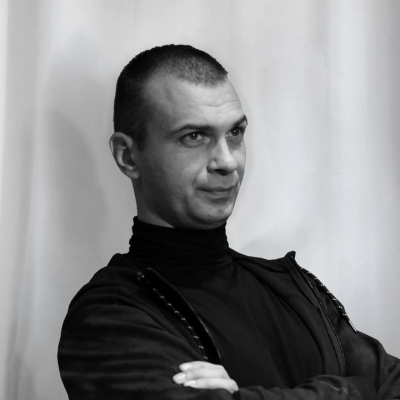Biography
ABOUT
Sergiu PETREA is the founder and Managing Partner of TECTO Arhitectura, an architectural firm established in 2004. He earned a PhD in Emergency Architecture in 2011 and serves on the Board of Directors of ARDLD, a non-governmental organization dedicated to sustainable development. Deeply engaged in scientific research, he actively advocates for rethinking the built environment. From the outset of his career, he has explored sustainable approaches to architectural design and green construction planning. In response to today’s climate challenges and the pressing need for resource efficiency, his work emphasizes energy performance strategies, bioclimatic experimentation, and the integration of technological and digital innovation in construction.
AWARDS OF THE SPEAKER
Second Prize for “Energy & Temperate Climates” at the Green Solutions Awards, Katowice, awarded by the international platform Construction 21 – First CLT Multi-comfort Office, Reci. 2018. International Rigips Trophy 2018 – Category: Innovation and Sustainability – First CLT Multi-comfort House, Office Reci. First Prize for ‘Green Architecture and Alternative Energies’ at the 2018 National Architecture Biennale – The First Multi-Comfort Building in CLT Reci. 2018. Winner of the First Prize at the National Architecture Competition – German School Campus Bucharest – DSBU. 2016.
SHORT DESCRIPTION OF THE OFFICE
Over the years, TecTo Arhitectura has built a strong reputation for its commitment to sustainable development and environmentally responsible design. The office has focused extensively on creating buildings with low energy consumption, embracing a wide typology that includes private homes, production facilities, office spaces, and educational institutions. Each project reflects a deliberate balance between architectural innovation and ecological awareness, integrating strategies that minimize environmental impact while enhancing long-term performance. Central to TecTo Arhitectura’s philosophy is the belief that architecture must contribute meaningfully to both human well-being and the health of the planet. This is achieved through a holistic approach that prioritizes the quality of life within the built environment, promotes social inclusion, and supports urban regeneration initiatives. By applying the principles of ecological design, the firm consistently explores solutions that incorporate passive energy systems, renewable materials, and climate-responsive architecture. Beyond design, TECTO Arhitectura engages in broader conversations around sustainability, collaborating with researchers, NGOs, and public institutions to advance best practices in green construction. This sustained effort has earned the office numerous awards and distinctions, and its work is frequently featured in specialized publications for its innovative contributions to sustainable architecture.
AWARDS OF THE OFFICE
- Award in the Unique Object Design Category: Domus Pacis, RAM 24 – Regional Architecture Exhibition Moldova Award in the Sustainability Achievements Category: Casa B
- RAM 24 – Regional Architecture Exhibition Moldova Honorable Mention in the Sustainability Achievements Category: HS Baco Panels HQ
- RAM 24 – Regional Architecture Exhibition Moldova Honorable Mention in the Work, Office, and Production Buildings Category: HS Baco Panels HQ
- RAM 24 – Regional Architecture Exhibition Moldova Award in the Service Buildings Category: DSBU, RAM 24 – Regional Architecture Exhibition Moldova
PROJECTS TO BE PRESENTED DURING THE EVENT
Project #1: DSBU – German School Bucharest
Project #1 Category: Education
Start year: 2018
End year: 2022
The project aims to create a lasting, nurturing environment for living and learning, tailored to support each child’s growth. It emphasizes healthy indoor climates and safety through the use of natural materials. The design features a contemporary, environmentally sensitive layout, with educational spaces forming a continuous loop around shared areas and playgrounds, maximizing natural light and openness. Integration with the surrounding community was a key focus, supported by a BIM-driven, iterative design process. Sustainability and the well-being of children and students remained at the heart of the project from concept to execution.










